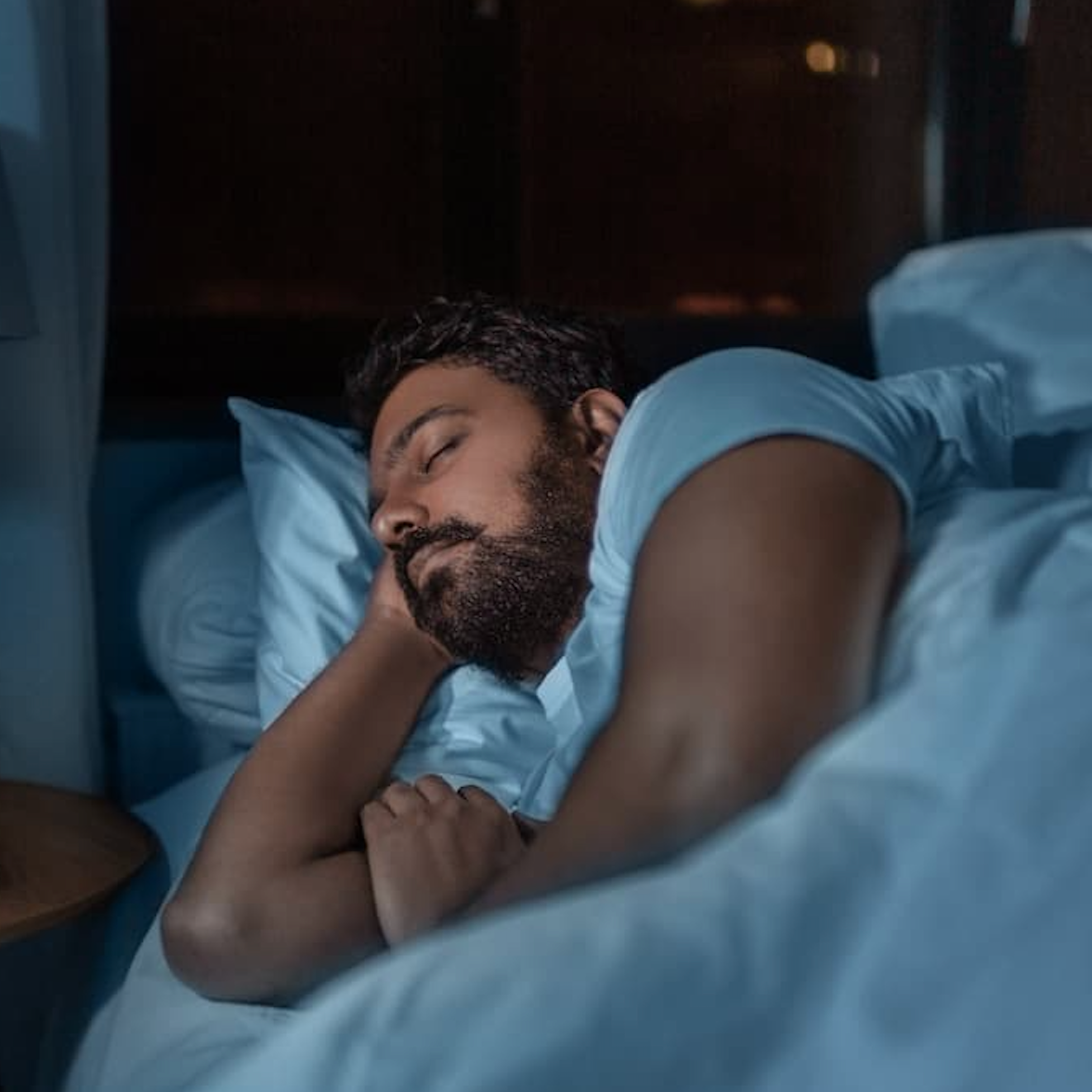Catch-Up Sleep Could Be Making Your Sleep Apnea Worse
Weekend sleep pattern changes — including sleeping in and going to bed later — were linked to significantly more breathing interruptions in people with obstructive sleep apnea, potentially impacting diagnosis and treatment.
By
Lana Pine
| Published on August 13, 2025
4 min read
Credit: Adobe Stock/Syda Productions

New research shows that obstructive sleep apnea (OSA) severity may spike on weekends, particularly in younger, male and overweight individuals. Using sleep data from more than 70,000 people monitored at home, a team of investigators found that weekend “catch-up” sleep and changes in sleep schedules — known as social jetlag — were linked to a significant increase in breathing interruptions during sleep.
“Sleep apnea is already a major public health issue, but our findings suggest its true impact may be underestimated,” said lead investigator Lucía Pinilla, Ph.D., from the Adelaide Institute for Sleep Health and FHMRI Sleep Health. “Most clinical diagnostic testing is done on a single night, typically a weeknight, missing the weekend effect we’re now calling social apnea.”
The Study
Since OSA severity can vary significantly from night to night — leading to possible misdiagnosis in about 20% of patients and increasing cardiovascular risk — investigators analyzed sleep data from adult users of an under-mattress OSA monitor to identify patterns related to weekend catch-up sleep and social jetlag. The sensor measured sleep duration, sleep timing and apnea-related instances, and data were collected between January 2020 and September 2023.
The Findings
Participants had an average apnea-hypopnea index (AHI) of at least 5 events per hour, most of whom were middle-aged, male and overweight.
OSA severity was significantly higher on weekends, with the odds of moderate OSA (AHI ≥15) being 18% higher on Saturdays compared to Wednesdays. This effect was stronger in men (21% increase) than women (9% increase), and in people under 60 years old (24% increase) compared with older adults (7% increase).
Weekend catch-up sleep of at least 45 minutes was linked to a further 47% rise in weekend OSA odds, while social jetlag of at least 60 minutes was associated with a 38% increase. The same weekend pattern appeared for severe OSA (AHI ≥30).
Across the week, AHI levels were on average 6% higher on weekends, translating to about 0.76 more breathing events per hour.
These findings suggest that lifestyle-driven variations in sleep timing could influence OSA severity, potentially affecting diagnosis and treatment decisions.
Senior author Danny Eckert, Ph.D., director of FHMRI Sleep Health, has some advice for preventing social apnea.
“Try to keep the same sleep schedule throughout the week and weekend, ensuring that you get the recommended 7 to 9 hours of sleep a night," he says. "Keeping a fixed wake-up time and using your prescribed OSA therapy, even on weekends, and going to bed when you feel sleepy will help ensure you frequently get enough restorative sleep, which can help combat the weekend spike in OSA.”
Investigators pointed to a few important limitations to keep in mind. The people included were those who bought and used a home sleep sensor, so they may be more health-conscious and have different sleep habits than the general population. Men made up most of the participants, so results may not reflect women’s experiences as accurately. The team didn’t have information on other factors that could influence sleep apnea — such as diet, exercise, alcohol or caffeine use, smoking, bedroom temperature, work schedules, medical conditions, or OSA treatments. Finally, sleep pattern changes were compared by weekday versus weekend, not by workdays versus days off, which could misclassify people with nontraditional or shift work schedules.
“The current finding of a systematic difference in OSA severity by day of week across years and countries underscores the existence of an underlying significant night-to-night variability in OSA severity,” investigators concluded.

